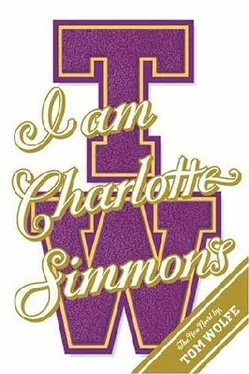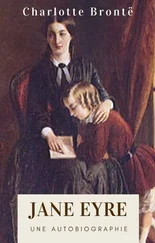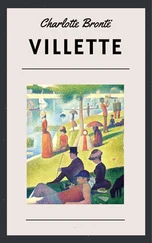He approached a fence made of panels of glass…seemed like a reception area…Four lean, sleek veal-gray workstations in a row and, at each, a lean, sleek young woman perched on a lean, ergonomic word processor’s chair. Adam could hardly believe it. They were gorgeous. As opposed to all the plastic veal in the place, they were definitely flesh and blood. Two of them, one with long dark hair parted down the middle, the other with long light brown hair parted down the middle, happened to swivel about, to get up. Adam felt inadequate to even approach these girls. They weren’t much older than he was, if at all, but they seemed to be from another order of human, in which everyone was glamorous and sex-savvy.
He caught the eye of the one with dark hair. Adam could barely croak out his appointment with “Coach Roth.” The girl turned to another young woman, whom she called Celeste, seated at a workstation, and Celeste turned to her computer and then to Adam, gave him a polite smile, assured him that Coach Roth would see him shortly, and gestured toward all the postmodern leather and stainless steel. Polite smiles they gave him, that and nothing more. They had written him off after the first glance. Each had sized him up as someone incapable of flirting…precisely because he had never even…gotten laid. They could tell! It showed! And the older he got, the harder it was going to be to do it, to admit he’d never done it before or demonstrate the same thing through his ignorance of technique and clumsy attempts at learning.
So he sank into a couch, and the rich tannery smell of the leather rose and befuddled him. He knew he should be concentrating on what he was going to say to Buster Roth, but the same vision kept dissolving his powers of logic: Charlotte, running on the treadmill, her face free of makeup or even thoughts of artifice—innocence in the flesh—and the dark line, the juice of her own body, down the cleft in her buttocks.
This strange state, with lust wafting through logic, lasted a long time, for Coach Roth did not see him shortly.
At last, “Mr. Gellin?” It was the same girl. She led him down a narrow arched passageway. He emerged into a room as bright as day. A big, middle-aged man wearing a polo shirt rocked back in a swivel chair behind an enormous postmodern desk—rich wood—walnut?—pointlessly curvy as on Philadelphia channel news shows. Buster Roth.
As Adam entered, Roth didn’t get up. In fact, he rocked back still farther in his chair. He eyed Adam for a moment with a slightly sly smile before he said, “Adam?”
Adam heard himself saying, “Yes, sir.”
Roth gestured toward an armchair near the desk. As Adam approached, Roth squinted his eyes at him and turned one side of his lips up in a smile that wasn’t so much a greeting, as Adam saw it, as a conclusion: I know your kind.
Adam sat down, and Roth, still rocked way back in his desk chair, said, “How long you been with us, Adam?”
“You mean tutoring?” said Adam.
Roth nodded yes.
“Two years, sir.” Why was he adding all these sirs? But he knew why. It was fear. He also knew viscerally that Roth was one of that breed of men who was totally unlike himself, the kind who welcomes a fight over anything whatsoever, the better to demonstrate his dominant nature, the kind who, in fact, couldn’t wait to show you how much he liked to tangle, the kind who, as a boy, dared you to take him on and then made sure you caved in immediately, perhaps by bullying but more often subtly, through “good-natured” roughhousing in which you always wound up as the “mock” victim and through a condescending obliviousness when you went out of your way to flatter him or curry favor. Adam, like so many others, had grown up knowing that the male sex was divided into these two types, those who seek to impress by their willingness to fight and who abide no insinuations that they might not have it—and those who, like himself, know from age six on that they don’t have it and who seek to avoid all situations where the distinction might be made. He would live out his life knowing which breed he was. He would be aware of it every day until the day he died. His shame would be profound, so profound that he would never mention it to a living soul, not even the intimate soul to whom he had divulged…everything…
“Two years…” Buster Roth was saying. He began nodding, as if ruminating over this interesting piece of information. “Well, I’m sure in two years you’ve gotten to know a lot more about sports and athletes than most students.”
Adam couldn’t figure out what the right answer to that might be. One answer might indicate that he knew more about it than was good for him. Another answer might indicate that he had a negative attitude.
Finally Adam said, “I can’t really tell, sir. I don’t know how much other students know. Other students certainly talk about the sports program a lot. I know that.”
“Well, you’re talking about fans now, Adam. I’m talking about—but by the way, since we’re on the subject, would you call yourself a fan?”
Adam didn’t know the right answer to that, either. “Yes” seemed like the better part of wisdom, but his pride wouldn’t let him say that, not even in front of an audience of one—one who had committed his entire life to sports. So he said, “Sort of, I guess, but I guess not in the way”—he wanted to say not in the way you mean, but that didn’t sound tactful enough—“not in the way most fans are fans.”
“Sort of but not in the way most fans are fans…” said Buster Roth with an unnatural drawl. Irony? “What would you say yours is?”
“Well, I’m like interested in sports…as sports, I guess you’d say. I mean I think it’s really interesting that millions of people become completely absorbed in sports, emotionally involved.”
The tactician in Adam—which is to say, his powers of logic—told him to drop the subject and act dumb or ask Coach Roth some humble question that would flatter the man’s sense of mastery of the world of sports. Neutralize yourself! Make him the subject! Why didn’t you just say, “Oh, yes, I’m a fan…” But the intellectual exhibitionist in him brushed the tactician aside, and he said, “Well, I guess I mean I’m interested in what makes fans fans.”
He wanted to say, “Why on earth do Dupont University students with average SATs of fourteen-ninety get excited, scream their hearts out over ‘their’ basketball team—which is made up of a bunch of hired mercenaries who probably wouldn’t average nine hundred without the swimmies—who live a life completely apart from the real students, who feel infinitely superior to them, who eat better food in a better dining room, who have tutors to do their schoolwork for them, who say you ain’t, he don’t, and nome saying?, who look upon friendly student fans as either sluts or suck-ups—why are they fans of such people?” But not even the egoist in Adam could push him that far, so he settled for, “I keep wondering why people in Boston, where I’m from, get so excited over the Red Sox. I mean, there’s not anybody on the team who’s from anywhere near Boston. They don’t set foot in Boston, most of them, except to go to Fenway Park. But that doesn’t matter. Red Sox fans are the most loyal fans in the world.”
He sensed that he was already getting too wound up. This was not the time, if ever, to try out the theory of championism on Buster Roth. “I mean, that’s the sort of thing that interests—that I’d like to figure out, I guess.”
“I see,” said Buster Roth with a tuned-out expression on his face. “What about the athletes themselves? You’ve gotten to know some of the athletes pretty well by now, I’d imagine.”
Adam hesitated. “I don’t know. I guess there are all kinds.”
Читать дальше










